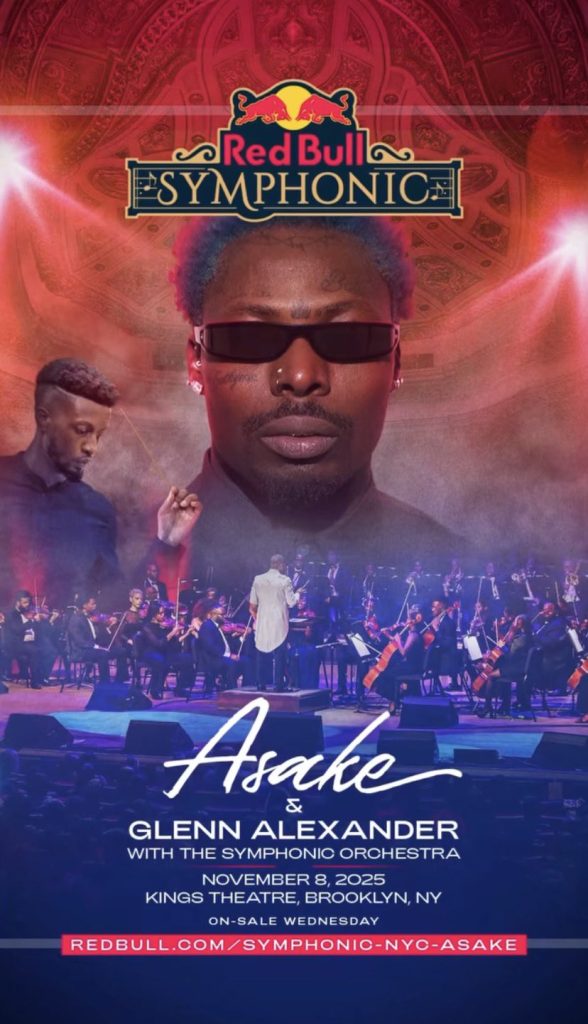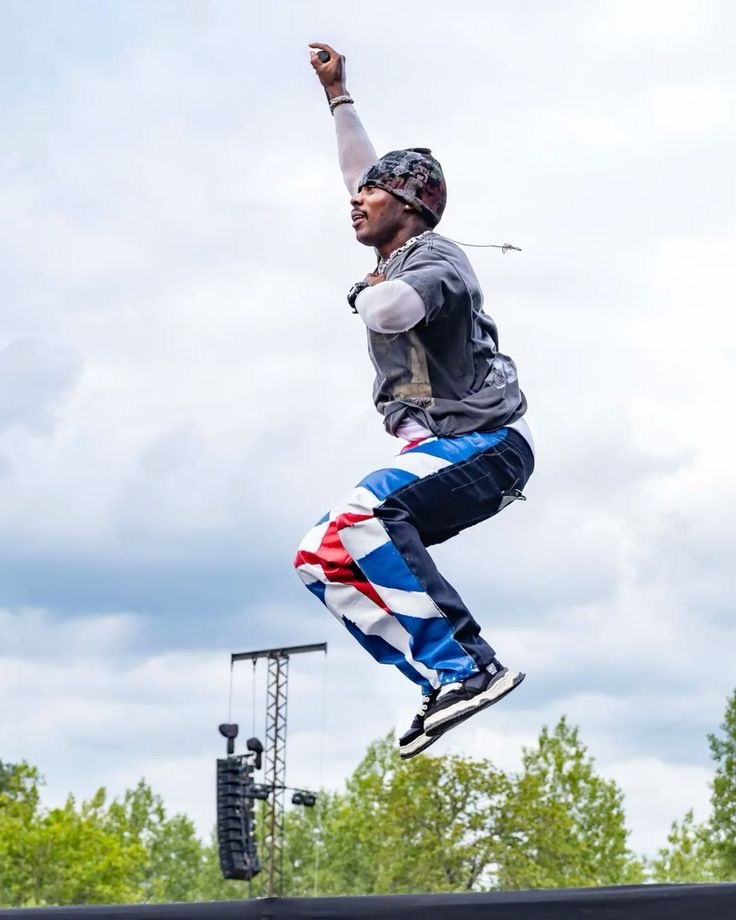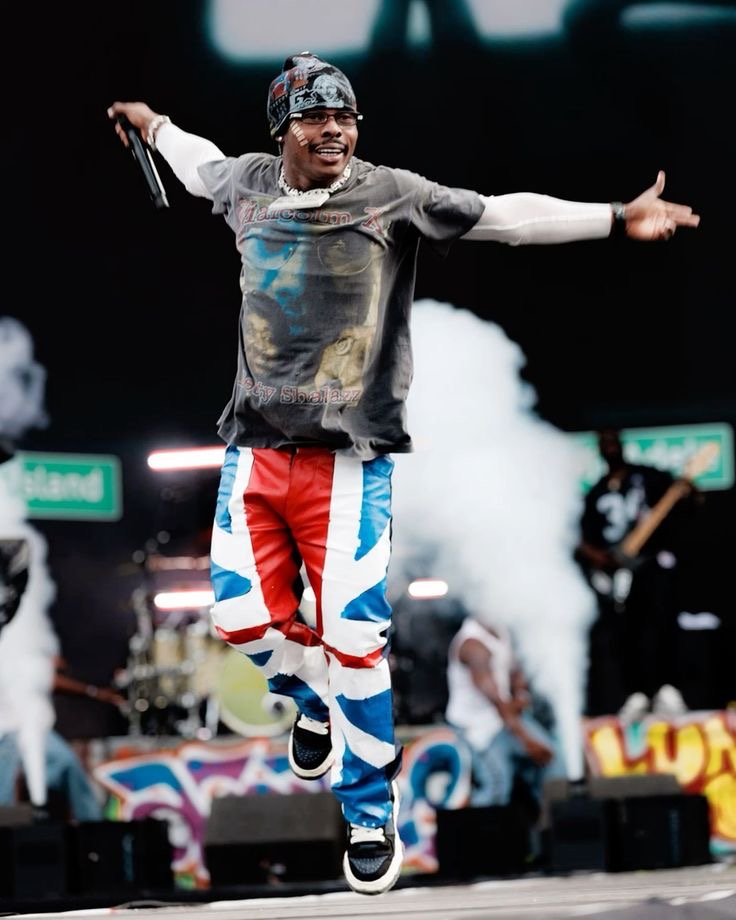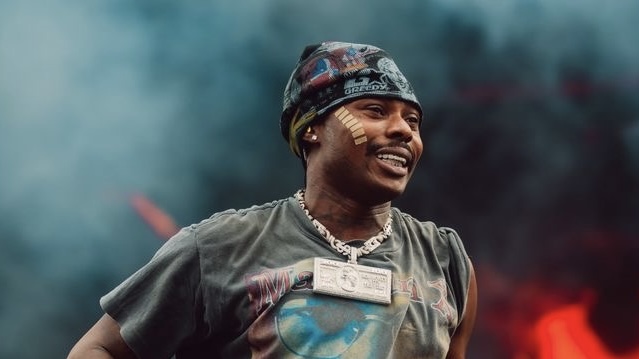Asake’s journey to fame is a love letter to Lagos—the city that nurtured and moulded him into one of his generation’s most fascinating artists. Originally aspiring to be a dancer, Asake has explored various paths, studying Theatre Arts at Obafemi Awolowo University, teaching dance, and acting in comedic skits before finding his true calling in music in 2017. Since 2022, he has released three albums (Mr. Money With The Vibe, Work of Art, and Lungu Boy) and achieved the longest-running No. 1 hit on the Official Nigeria Top 100 chart with Lonely at the Top in 2023. That year, he also became the first Nigerian to sell out Brooklyn’s Barclays Center. He has sold out the O2 twice and received two Grammy nominations, marking significant milestones in his career.

When Asake takes the stage at Brooklyn’s King Theatre on November 8, 2025, for the Red Bull Symphonic, he’ll be stepping into something larger than performance, a cultural statement. Backed by a full orchestra led by Glenn Alexander II, his sound will take on a new form: the textured Yoruba cadence of Fuji, the rhythmic pulse of Afropop, and the soulful bounce of Amapiano will meet strings, brass, and horns in one fluid, world-class composition. It’s the kind of show that celebrates music as both heritage and experiment. The fans in Lagos would get a high out of an experience like this, something away from the regular live shows they are used to and are often not satisfied with.
For many Nigerian artists, Lagos is the beginning and the blueprint. It’s the city that tests your mettle, the one that decides who becomes a star and who fades into memory. Lagos has always been the crucible of creativity, chaotic, unpredictable, but full of possibility. It’s the home that built Afrobeats from scratch. When his breakout single Mr. Money hit the airwaves in 2020, it was in Lagos nightclubs, on and off the Island that he was first crowned the faceless king of pop. Two years later, in 2022, his career exploded with Omo Ope, the record that put him on the map and caught the attention of veteran Afrobeats star Olamide, who soon signed him to YBNL Nation, with distribution through Empire Records.
Yet, for all its cultural importance, Lagos still lacks the kind of live infrastructure and creative ambition that could host something as grand and experimental as Red Bull Symphonic.

The format of the orchestra itself isn’t just another concert; it’s a reimagination of sound and setting. Red Bull Symphonic transforms popular genres by pairing them with classical orchestration, strings, brass, woodwinds, percussion, to create something unexpected. Since its debut in 2020, it has travelled across continents, celebrating local genres in their most elevated forms: electronic music in Vienna, hip-hop in Atlanta with Rick Ross, cinematic trap with Metro Boomin in Los Angeles, and Amapiano with Kelvin Momo in Johannesburg. It’s a global conversation between modern rhythm and classical discipline, and so far, Lagos hasn’t had a seat at the table.
That absence is telling.
Lagos, the pulsating heart of African pop culture, has long defined the sound of a generation. Yet its fans, the same people who build movements, drive streams, and fill dance floors rarely get to experience these world-class, concept-driven live productions firsthand.
These fans are the movement’s first believers. They’re the ones who stayed when no one else was listening, who turned club tracks into global hits and hashtags into history. They built the demand that made Afrobeats the world’s next big sound. Yet, they sometimes do not experience the best. Concerts are rushed, ticket prices inflated, and the sound quality inconsistent. The production value that global fans experience often gets lost in translation when it comes back home.
Meanwhile, South Africa offers a glimpse of what’s possible when structure meets ambition. In Johannesburg, Red Bull Symphonic staged three nights of orchestral Amapiano, blending township grooves with symphonic texture. The result wasn’t just a show; it was cultural preservation through innovation. It proved that local audiences are hungry for sophisticated live experiences when treated with respect and intentionality.

Nigeria has a good amount of what it takes. It already has the talent, the audience, and the cultural capital. What’s needed is collective will from other key players. And slowly, signs of that evolution are appearing. In May 2025, the Nigerian Federal Government partnered with Chocolate City Group to transform the National Film Institute into a world-class film and production school. In 2024, Rema’s collaboration with the Edo State Government turned his homecoming concerts into accessible cultural events, subsidising tickets for fans in Benin. These moves suggest a new awareness that music isn’t just entertainment, but a national asset that can drive tourism, innovation, and pride.
So while Asake’s Red Bull Symphonic debut in New York will rightfully be celebrated as a triumph for Afrobeats, it should also serve as a pointed reminder: Lagos is not only an origin of global success stories, it deserves the same caliber of innovative live experiences that match both its creative legacy and the sophistication of its audience. Because at its core, Afrobeats was never purely about export. It has always been about expression.
As the next symphonic moments echo from Brooklyn with Asake and Afrobeats, Lagos — where it all started will not only feel and be proud of it, but also realize something more profound: Afrobeats innovation isn’t just meant for global stages; it’s made for them. When the music completes its journey, Lagos will see that the future of live African sound doesn’t need to be imported, it can be conceived, refined, and celebrated right at home.what

Leave a Reply